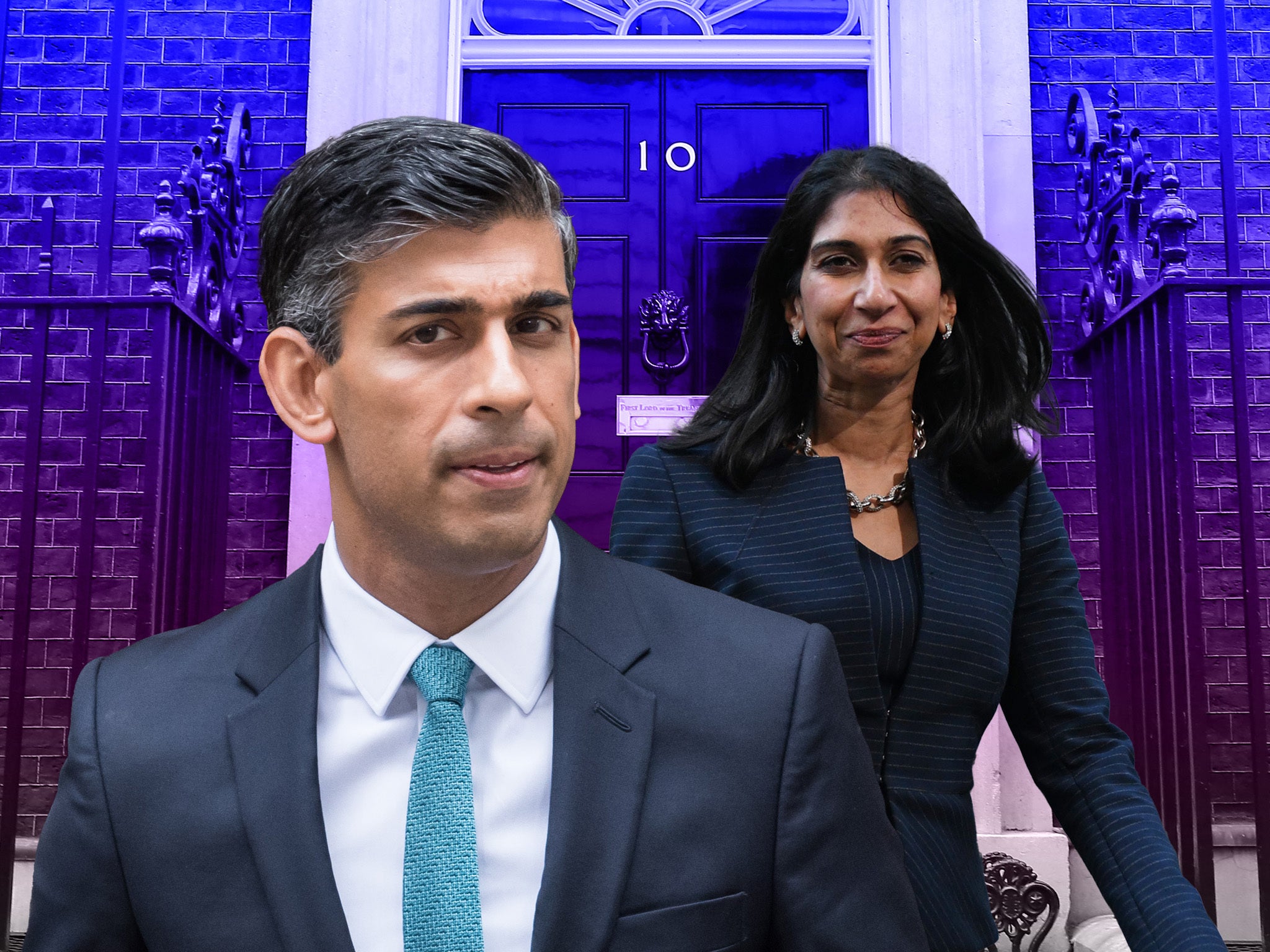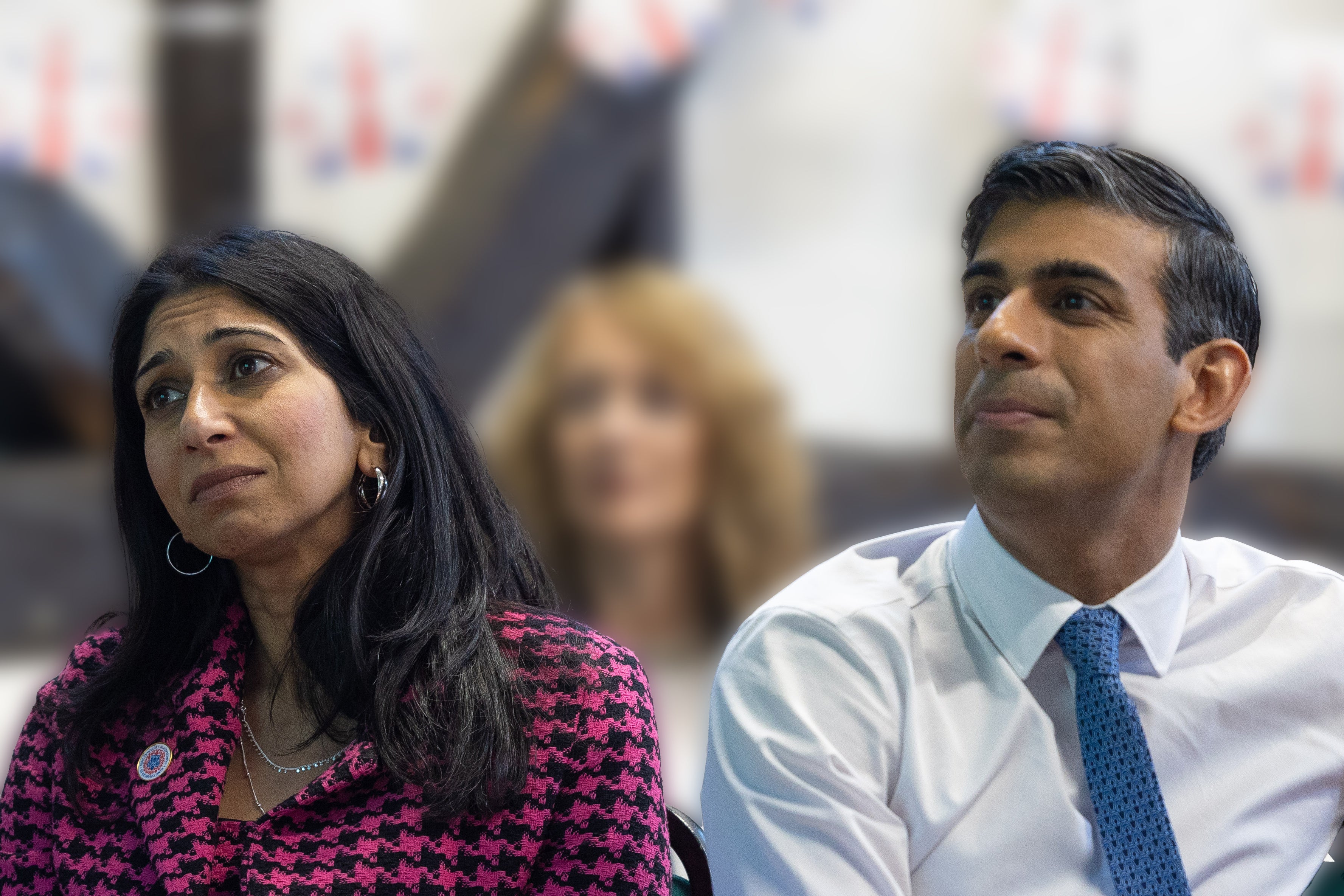Sunak’s small boats drive won’t bring back Tory voters, says John Curtice
Focus on Channel migrants reminds voters of ‘dramatic failure’ of Brexit, says polling guru

Rishi Sunak is wrong to believe his promise to solve the small boats crisis can win back former Conservative voters, claims the polling guru Prof John Curtice.
Prof Curtice says the Tories were misguided in focusing so strongly on Channel migrants issue because it reminds people of the “dramatic failure” of Brexit to control immigration.
“The remarkable thing about focusing on the boats is it’s, ‘Let’s take one of the apparent, clearest most dramatic failures to deliver on a promise in the Brexit campaign and make that thing we want the public to focus on’,” Curtice said on Wednesday.
The elections expert said small boats “isn’t clearly the way back to persuading those people who have defected from the Conservatives to come back to them”.
Emphasising the importance of the economy to 2019 Tory voters, Prof Curtice said: “What they have to be able to do is persuade people the economy in general – and Brexit in particular – is actually doing well and doing well as a result of Conservative stewardship.”
He added: “That is the fundamental problem for the Conservatives – in chasing immigration, they are chasing the wrong target.”
Luke Tryl, UK director of the More in Common group, said the issue of small boats lagged behind the cost of living and the NHS in even red wall voters’ list of priorities, with widespread pessimism about Mr Sunak’s promise to cut the crossings.
“The public are incredibly cynical that any of this is going to work,” he said of the focus group his organisation carries out. “There is this sense that the Conservatives promise and promise yet they haven’t delivered.”
A senior Tory MP said Mr Sunak accused the prime minister of “over-promising and under-delivering”, having made a “massive statement” with his promise to stop the boats.
The MP told The Independent they feared the numbers are going to increase over the summer – leading to further frustration with the Tories after Mr Sunak claimed this week his plan was “working”.
A YouGov poll in April found that some 63 per cent thought he was unlikely that Mr Sunak would be able to stop the boats. A BMG poll this week found that 79 per cent of voters believe Brexit has had a negative impact on migration levels (44 per cent) or has made no difference (35 per cent).

Prof Curtice said support for the Tories among 2016 Leave voters had “fallen away spectacularly”, while Labour had seen a “dramatic rise” in support among Brexit-backing Leave voters.
However, he said that it was not clear whether it was because Labour was “keeping schtum” about Brexit, or the general decline in support for Brexit over the negative impact of Britain’s exit from the EU on the economy.
Prof Curtice was speaking about the ongoing importance of Brexit among voters at a Best for Britain press conference.
The internationalist campaign group revealed the results of a new megapoll that puts Labour on course for a landslide majority of 140 at the general election. The multilevel regression and post-stratification (MRP) analysis of fresh Focaldata polling showed Labour on course to win 470 seats.

However, under a “worst case scenario” model – where undecided voters break in favour of the Tories, and Reform UK stands down in marginal seats – Labour get only 316 seats and the Tories get 286.
The result would leave Labour short of majority and forced to chase coalition arrangements with others in a hung parliament.
Naomi Smith, Best for Britain’s chief executive, warned that the election was still “up for grabs” as she encouraged more tactical voting. “There isn’t necessarily going to be a change of government.”
Carol Vorderman, who has become a fierce critic of the government, said anti-Tory tactical voting could be a “huge factor in the next election”, saying voters were becoming “more sophisticated” about switching between progressive parties.
The TV presenter and campaigner said voters should ask themselves: “Do they want this disgraceful government or don’t they?”
Mr Tryl said there was “the potential for quite a large” Labour majority, but said the support for Sir Keir Starmer’s party was still “quite soft” – arguing that the opposition was “winning by default” because of Tory unpopularity.
The More in Common director said that his group’s recent focus groups suggested Mr Sunak was struggling to win over red wall voters who worry about his wealth and wonder if he can “relate” to their financial woes. But he said the word that best describes voters attitude to Sir Keir Starmer is “meh”, adding: “His voice grates with people.”
Asked about voters attitudes to potential successors to Mr Sunak should the Tories lose the next election, Mr Tryl said Penny Mordaunt and Kemi Badenoch had been the most popular candidates at the Tory leadership election last summer.
He warned against the idea of home secretary Suella Braverman as a potential Tory leader. Mr Tryl said she would be “the longest suicide note in history-type candidate for the Conservative party, simply because she is so polarising”.
“When we said we would stop the boats, I meant it – and that’s what we’re delivering,” said Mr Sunak on Monday, as he hailed a 2023 decrease in small boat crossings of just over 20 per cent compared to the same period last year.
Ms Braverman said: “We have a long way still to go, and we are not complacent. We will not rest until we stop the boats.”
Join our commenting forum
Join thought-provoking conversations, follow other Independent readers and see their replies
Comments



Bookmark popover
Removed from bookmarks